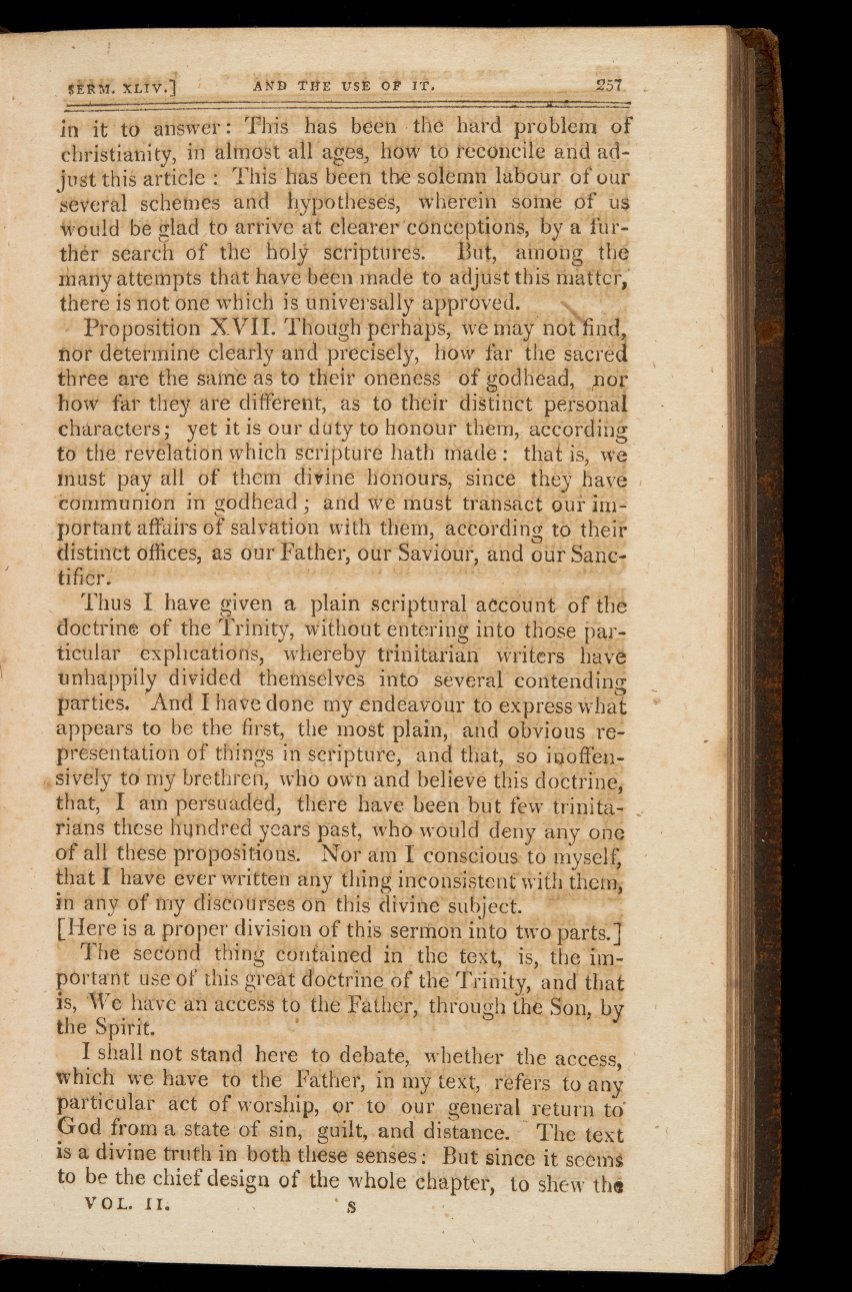

SLIItI. KLIV.3
AND
THE
USE OP
IT.
257
in
it
to answer
:
This
has been
the hard problem
of
christianity,
in
almost all
ages, how
to
reconcile
and ad-
just
this
article
:
This
has been
the
solemn
labour
of
our
several schemes and hypotheses, wherein some
of
us
would
be
glad
to
arrive
at
clearer
'conceptions,
by a
fur
-
thcr
search
of
the
holy
scriptures.
But,
among the
many attempts
that
have been made to
adjust
this
matter,
there
is
not
one which
is
universally approved.
Proposition
XVII.
Though
perháps,
we
may
not''Find,
flor
determine
clearly
and
precisely,
how
far the
sacred
three
are the same
as
to
their
oneness
of
godhead,
nor
how
far
they are different,
as
to
their distinct
personal
characters;
yet
it
is
our
duty
to
honour them,
according
to the revelation
which
scripture hath
made
:
that
is,
we
must
pay
all
of
them divine honours, since they
have
communion
in
godhead
;
and
we
must
transact
our
im-
portant
affairs
of
salvation
with
them,
according
to
their
distinct
offices,
as
our Father, our
Saviour,
and
oïár
Sanc-
tifier.
Thus
I
have
given
a
plain
scriptural account of
the
doctrine
of
the Trinity,
without entering into
those
par-
ticular
explications, whereby
trinitarian
writers have
unhappily divided themselves
into
several
contending
parties.
And
I
have
done
my
endeavour
to
express
what
appears
to
be
the
first,
the most plain, and obvious
re-
presentation of
things
in
scripture,
an that,
so
inoffen-
sively
to
my
brethren,
who own
and believe
this
doctrine,
that, I
am
persuaded, there have been
but
few
trinita-
rians
these
hundred
years past, who would deny any
one
of
all
these
propositions.
Nor
am
I
conscious
to
myself,
that
I
have
ever written any thing inconsistent'
with
them,
in any
of
my
discourses
on
this divine subject.
[Here
is
a
proper
division
of
this sermon into
two
parts.1
The
second thing
contained
in
the text,
is,
the im-
portant
use
of
this
great doctrine of
the
Trinity,
and
that
is,
We
have
an
access to the
Father,
through
the
Son,
by
the Spirit.
I
shall
not stand here
to
debate, whether the access,
which
we
have to the
Father,
in my
text,
refers
to
any
particular
act
of
worship,
or
to
our general
return
to'
God
from a
state
of
sin,
guilt, and distance.
The text
is
a
divine
truth
in
both these senses:
But
since
it
seems
to be
the chief design
of
the whole chapter, to
shew
the
VOL.
II.
S

















